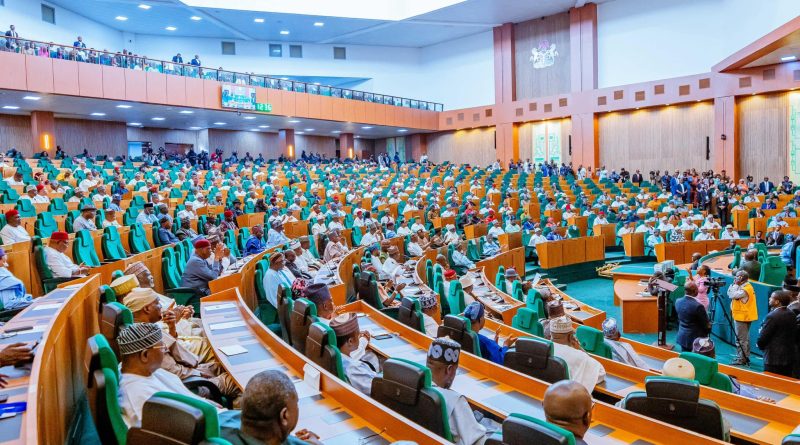Reps consider bill to entrench LGs as federating units in Nigerian Constitution
The House of Representatives has moved to amend the 1999 Constitution to grant constitutional recognition and full autonomy to local governments and area councils, a reform lawmakers say will strengthen grassroots governance and deepen Nigeria’s federal structure.
The bill, titled A Bill for an Act to Alter the Provisions of the Constitution of the Federal Republic of Nigeria, 1999 (as amended), to include Local Government Areas and Area Councils as Constituent Units of the Federation and for Related Matters, scaled second reading during Wednesday’s plenary session.
Jointly sponsored by the Speaker of the House, Abbas Tajudeen, and Adewale Hameed (APC, Lagos), the proposed legislation aims to constitutionally elevate local governments from mere administrative extensions of state governments to autonomous tiers of governance with clear constitutional backing.
Lead debate
Leading debate on the bill, Mr Hameed described the local government system as “the closest level of government to the people,” stressing its importance in delivering essential public services and fostering inclusive development.
“The local government delivers essential services such as primary education, healthcare, sanitation, security, and community development. It is a crucial and indispensable level in our governance structure.”
He lamented that despite being recognised in the Fourth Schedule of the 1999 Constitution, local governments are not explicitly listed as a full-fledged tier of government or as constituent units of the federation.
“This bill,” he explained, “seeks to amend the constitution to explicitly recognise local government areas and area councils of the Federal Capital Territory as constituent units of the federation, alongside the federal and state governments. In doing so, we aim to affirm and protect the autonomy of local governments and area councils.”
Expanding his argument, the lawmaker said the amendment was not simply about administrative reorganisation but the survival and deepening of Nigeria’s democracy.
“The success of our democracy depends on how well governance and development reach the people at the grassroots,” he told lawmakers. “Strengthening local government autonomy through constitutional recognition is not just an administrative reform; it is a democratic imperative.”
He argued that the proposed alteration would reaffirm Nigeria’s commitment to a true federal system resting on three constitutionally recognised tiers, the federal, state, and local government, each with its own powers, responsibilities, and financial independence.
“By passing this bill,” he said, “the National Assembly will be making a historic statement that Nigeria’s federation genuinely rests on three constitutional pillars, the Federal Government, the State Governments, and the Local Governments.”
House endorses bill
The House unanimously adopted the bill without debate, a sign of broad bipartisan support.
Mr Tajudeen, who presided over the session, subsequently referred the bill to the Committee on Constitution Review for further legislative work.
If eventually passed by both chambers and endorsed by the required two-thirds of the 36 state Houses of Assembly, the amendment would mark one of the most consequential constitutional reforms in Nigeria’s democratic history.
Why LG autonomy matters
Local governments have long been regarded as the foundation of effective governance, being the closest interface between citizens and the state. However, over the years, they have suffered deep institutional erosion due to excessive control by state governments.
Efforts to constitutionally guarantee local government autonomy are not new. Similar proposals were introduced during the 7th, 8th, and 9th National Assemblies but repeatedly failed, largely because most state assemblies refused to ratify the amendments.
In 2023, during the 9th Assembly, both chambers of the National Assembly passed an amendment bill seeking to guarantee local government independence but failed to secure the required endorsement from 24 state legislatures. Many governors had opposed the move, viewing it as an encroachment on their constitutional powers.
READ ALSO: Reps advance bill to establish Nigerian Fintech Regulatory Commission
Under the existing constitutional framework, state governors exercise significant authority over local councils, including dissolving elected councils and replacing them with caretaker committees.
Several civil society groups have repeatedly campaigned for local government autonomy, arguing that rural communities will continue to suffer underdevelopment without constitutional protection.
In July 2024, the Supreme Court granted financial autonomy to the 774 local governments in Nigeria. The ruling makes it unconstitutional for state governors to withhold funds, dissolve councils, or appoint caretaker committees. Thus, it mandates that federal allocations be sent directly to the LGAs.

